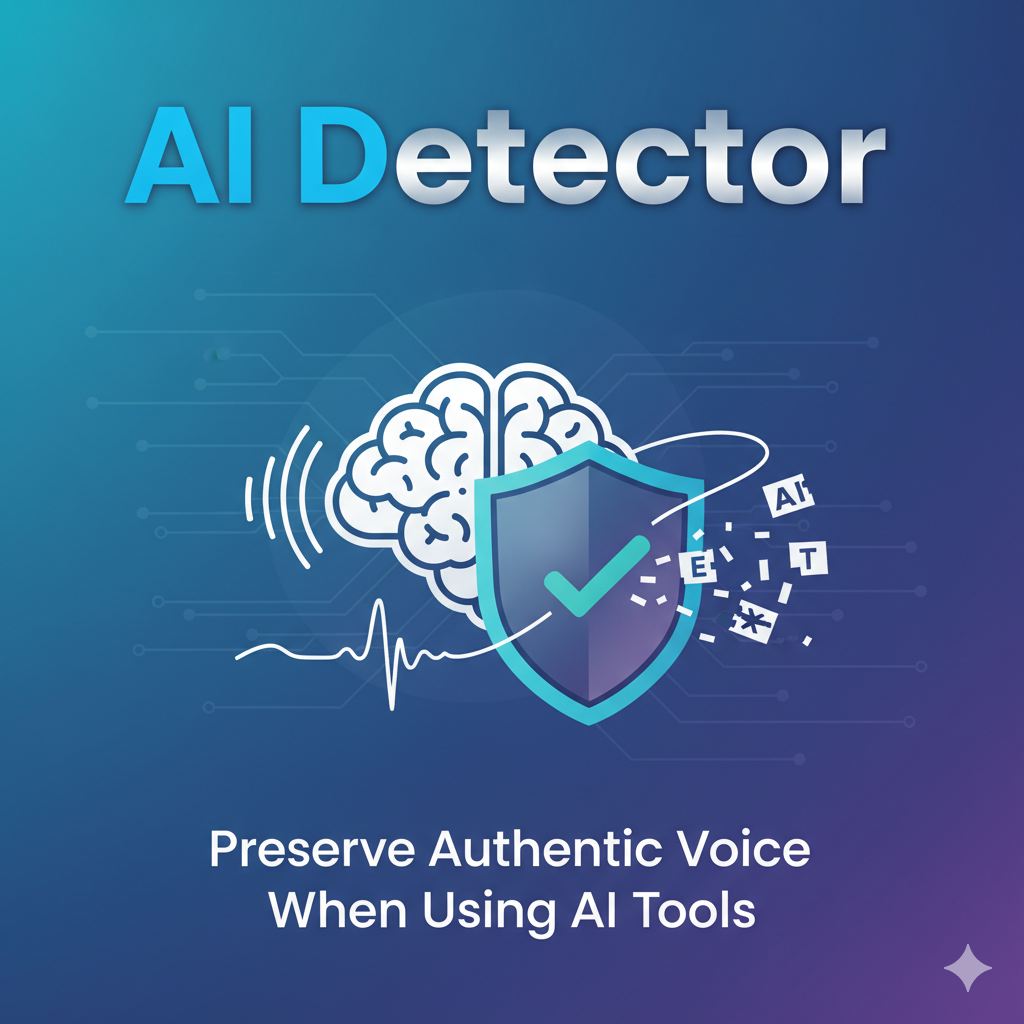AI Detector: The Digital Truth Finder of the Modern Age

In an era where artificial intelligence shapes the rhythm of online life, a quiet revolution is unfolding — one led by the AI detector. This remarkable tool isn’t just a piece of software; it’s a guardian of authenticity in a world overflowing with machine-generated words, visuals, and ideas. Whether it’s a university essay, a news article, or a marketing campaign, the AI detector has become the invisible gatekeeper of truth.
The Rise of the AI Detector
A few years ago, no one imagined that machines could write essays, paint portraits, or compose poetry. Today, AI does all that and more — with astonishing fluency. As technology advanced, so did confusion. How can anyone tell whether something was written by a human hand or crafted by an algorithm? The AI detector emerged as the answer to this question.
Its purpose is simple yet powerful: to analyze text or content and determine whether it carries the digital fingerprints of artificial intelligence. It doesn’t just look for copied material; it looks deeper, into tone, rhythm, and coherence — those subtle markers that separate human intuition from machine precision.
How the AI Detector Works
The inner workings of an AI detector are a fascinating dance between data and logic. These tools use sophisticated language models trained to recognize patterns specific to AI writing. For example, machine-generated text often shows certain repetitive phrases, perfectly balanced sentence structures, and a lack of emotional irregularity — things humans naturally create.
When you paste a piece of writing into an AI detector, the software evaluates every sentence for probability scores. It measures randomness, word variation, and even semantic flow to decide if a human or AI wrote it. Some advanced detectors use deep learning networks that adapt with time, continuously improving their accuracy as AI writing itself evolves.
Why the AI Detector Matters
In education, AI detectors have become essential. Teachers and professors use them to ensure students are learning, not just generating. In journalism, editors rely on detectors to maintain credibility. And in marketing, brands use them to preserve their unique voice — because an AI-generated slogan may sound clever, but authenticity builds trust.
The AI detector represents a turning point for digital integrity. As AI-generated content floods the internet, human creativity risks dilution. Detectors act as digital filters, helping preserve originality and keeping the online world balanced between innovation and honesty.
The Human Touch vs. Machine Precision
AI is capable of extraordinary mimicry. It can emulate a novelist’s tone, a poet’s rhythm, or a marketer’s flair. Yet, there’s something ineffable about the human touch — the uneven flow of thoughts, the spontaneous phrasing, the emotional imperfections that breathe life into words.
An AI detector doesn’t just identify what’s written; it deciphers how it’s written. It catches that over-structured neatness, that uncanny uniformity, and gently whispers, “This might not be human.” In doing so, it restores value to human imperfection — reminding us that flaws are a form of authenticity.
Beyond Words: The Expanding Role of AI Detection
While text is the primary battleground, AI detection is expanding rapidly into other domains. Visual detectors now identify AI-generated images, such as deepfakes and synthetic art. Audio detectors can analyze voice patterns to determine if a recording is genuine or computer-generated.
The AI detector is evolving into a full-spectrum digital truth system — one that doesn’t just expose, but educates. It encourages transparency, helping people use AI responsibly rather than fear it.
Challenges in Detecting AI
Ironically, as detectors get smarter, so do the AIs they’re built to identify. The competition between creators and detectors is a never-ending race. Every time a detector learns a new pattern, AI models refine themselves to bypass it.
This dynamic creates a digital arms race — one that pushes both technologies forward. The challenge for future detectors will be maintaining high accuracy without generating false positives, ensuring that genuinely human work isn’t misclassified. Transparency and ethical calibration will be key.
AI Detector and the Future of Content Creation
The existence of the AI detector doesn’t mean AI is a threat — it’s a reminder to use technology wisely. Imagine a future where every article, image, or song clearly labels whether it was made by humans, AI, or both. This open acknowledgment would create harmony between man and machine, fostering collaboration instead of conflict.
Writers could use AI for brainstorming but still take pride in their personal craft. Businesses could automate processes while preserving authenticity. Students could learn how to use AI as a creative ally, not a shortcut. The detector would be the compass guiding that balance.
Ethical and Social Impact
At its core, the AI detector is a tool for truth. But truth itself must be handled carefully. Some argue that heavy reliance on AI detection might limit creative expression or unfairly judge hybrid works. The solution lies in redefining authorship — understanding that human-AI collaboration is the future, not a violation of it.
When used responsibly, AI detectors can protect originality without stifling innovation. They serve as a reminder that technology should amplify human creativity, not replace it.
Conclusion: The Guardians of Authenticity
In a world increasingly written, painted, and sung by algorithms, the AI detector stands as a quiet hero — the watchful guardian of genuine thought. It doesn’t exist to shame technology but to celebrate honesty. It teaches us that as we merge with machines, our greatest power remains what it has always been: the uniquely human spark that no algorithm can truly replicate.
As AI grows smarter and the digital universe expands, one thing becomes certain — truth will always find its way through, guided by the silent strength of the AI detector.
- Art
- Causes
- Crafts
- Dance
- Drinks
- Film
- Fitness
- Food
- Игры
- Gardening
- Health
- Главная
- Literature
- Music
- Networking
- Другое
- Party
- Religion
- Shopping
- Sports
- Theater
- Wellness

